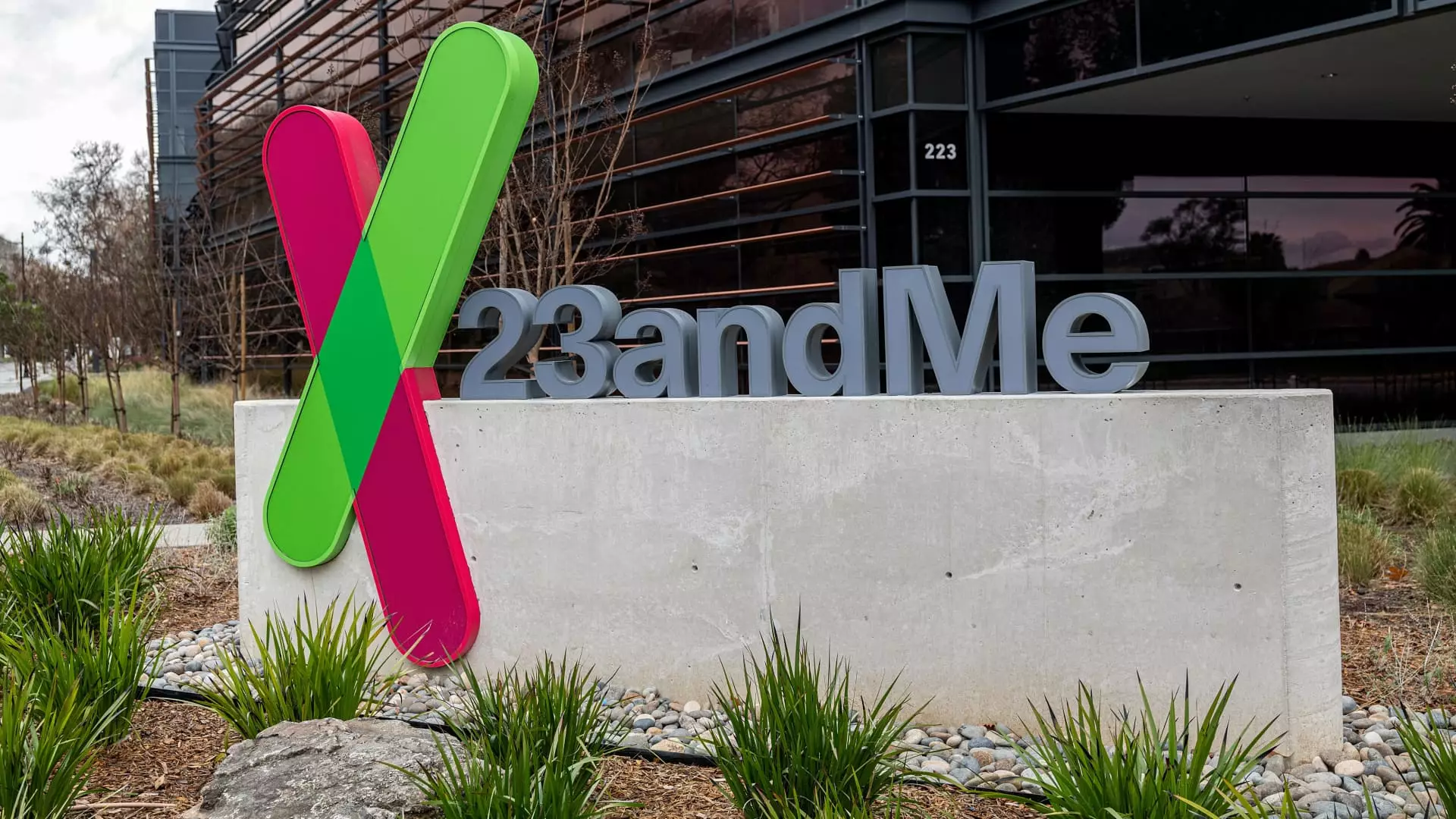In recent years, the emergence of at-home genetic testing companies like 23andMe has revolutionized how individuals perceive their ancestry and personal health. With swift results available at the click of a button, consumers have eagerly embraced the opportunity to unlock the mysteries of their DNA. However, what was once hailed as a breakthrough in personal empowerment is now entangled in a web of privacy concerns and corporate turmoil. As 23andMe files for Chapter 11 bankruptcy protection, the implications for consumers and the greater industry are profound and call for urgent reflection.
Understanding the Risk of Sharing Genetic Data
The essence of DNA testing lies in the unique nature of each individual’s genetic sequence. While great insights can be gleaned from one’s genetic makeup, the sensitivity of this information cannot be overstated. The National Human Genome Research Institute emphasizes that DNA data is fundamentally distinctive and poses privacy risks that need serious consideration. As 23andMe navigates its uncertain future, experts alarmingly note the potential for misuse of genetic data, particularly regarding identity theft and insurance fraud.
Hackers recently infiltrated 23andMe’s systems, accessing data from approximately 7 million customers—an incident that has shaken the public’s perception of the company’s commitment to privacy. When companies mismanage or underestimate the fragility of personal information, the consequences can be catastrophic. Genetic data, which once promised to enrich lives, can quickly morph into a liability in the wrong hands.
Customer Rights in a Worrisome Landscape
Amid the dire circumstances surrounding its bankruptcy, 23andMe has reassured consumers that it prioritizes data privacy even during the asset sale. Despite these assurances, doubts linger. California Attorney General Rob Bonta has gone as far as to urge residents to consider deleting their genetic data from the platform, discouraging reliance on promises made during tumultuous times. The Attorney General’s actions signal a growing distrust regarding the management of sensitive personal information, and he urges consumers to actively manage their digital legacies, including invoking their rights to data deletion.
Consumers must approach this tumultuous landscape with healthy skepticism. Genetic data is a form of personal information that goes beyond conventional data privacy concerns. For many, it encapsulates family history, health predispositions, and even potential future risks—all rendered vulnerable by corporate misadventures and potential data breaches. The slippery slope of irresponsibility in personal data management demands attention, pushing consumers to rethink how and with whom they share their genetic sequences.
Acting Responsibly: Steps for Consumers
For consumers who feel compelled to take action, navigating the deletion process from 23andMe is not as straightforward as it should be. A convoluted approach and reliance on digital platforms create additional friction for individuals. While 23andMe provides instructions for account deletion, this process should not feel daunting. If users are to act on expert advice, they need a seamless path to disengage from a service potentially fraught with issues.
It is clear that individuals must take ownership of their digital identities. Actions like signing up for identity theft protection services and maintaining an aware stance in the digital space become paramount. By routinely monitoring one’s own data, consumers can strive for greater autonomy over their genetic information.
Rethinking the Future of Genetic Testing
The situation surrounding 23andMe exemplifies larger issues ripe for discussion in the genetic testing arena. Are companies adequately preparing for the mounting challenges of cybersecurity? Moreover, how well do they truly understand the ethical responsibilities tied to handling such sensitive information? As the industry grapples with these incredibly complex questions, customers’ vigilance will remain the fortress that protects their sacred genetic legacies.
Ultimately, the decision to test and share one’s DNA should be approached with caution and clarity. A more reflective culture around genetic testing could foster an environment where user rights and ethical practices take precedence, allowing for meaningful advancements in the field without compromising safety. As we navigate this evolution, it is crucial that customers remain active stewards of their own data, ensuring their voices are heard and respected.


Leave a Reply